Fate of thousands of Izadis captured by Daesh still unknown: Official
An official at the Endowments and Religious Affairs Ministry of the semi-autonomous Kurdistan Regional Government says more than 3,000 members of Izadi minority remain unaccounted for ever since Takfiri Daesh militants overran their hometowns in northern Iraq back in 2014.
“The fate of 3,102 Izadis remain unknown since Daesh terrorists attacked our towns and cities in mid-2014,” Khairi Bozarni said at a conference devoted to the “Izadi Genocide” in the Kurdish capital city of Erbil on Wednesday.
Bozarni added that more than 2,500 Izadi Kurds lost their lives at the hands of Daesh Takfiris, while another 6,000 – mostly women and children – were abducted.
He noted that 66 places of worship for Izadis have also been desecrated or destroyed by the terror group.
“What’s more, more than 100,000 Izadis have fled Kurdistan region and Iraq in general since the summer of 2014,” Bozarni said.
He went on to say that Kurdish Prime Minister Nechirvan Barzani has secured the release of more than 2,000 abducted Izadis.
Bozarni also called on the international community as well as the central government in Baghdad to discover the fate of missing Izadis as soon as possible.
Earlier this year, Iraqi security forces found a mass grave in the northern province of Nineveh, which contained the bodies of dozens of Izadis believed to have been executed by Daesh terrorists when they were in control of an area there.
A security source, speaking on condition of anonymity, told Arabic-language al-Etejah television network that federal police forces had made the discovery in the town of Qahtaniyah, located about 100 kilometers from Mosul, and that the mass grave contained the bodies of 70 people.
He added that security forces had handed over all the bodies to the forensic department in Mosul to be identified and returned to their relatives.
Back in August 2014, Daesh terrorists overran the town of Sinjar, killing, raping, and enslaving large numbers of Izadi Kurds.
The region was recaptured in November 2015, during an operation by Kurdish Peshmerga forces and Izadi fighters.
The Office of Kidnapped Affairs in the northern Iraqi city of Dohuk said last year that around 3,500 Izadi Kurds were still being held captive by Daesh, adding that a large proportion of the abductees were women and children.
The Endowments and Religious Affairs Ministry of Kurdistan Regional Government announced last August that Daesh’s genocide against Izadis had forced nearly 360,000 members of the minority to flee their hometowns, and another 90,000 to leave Iraq and take refuge in other countries.
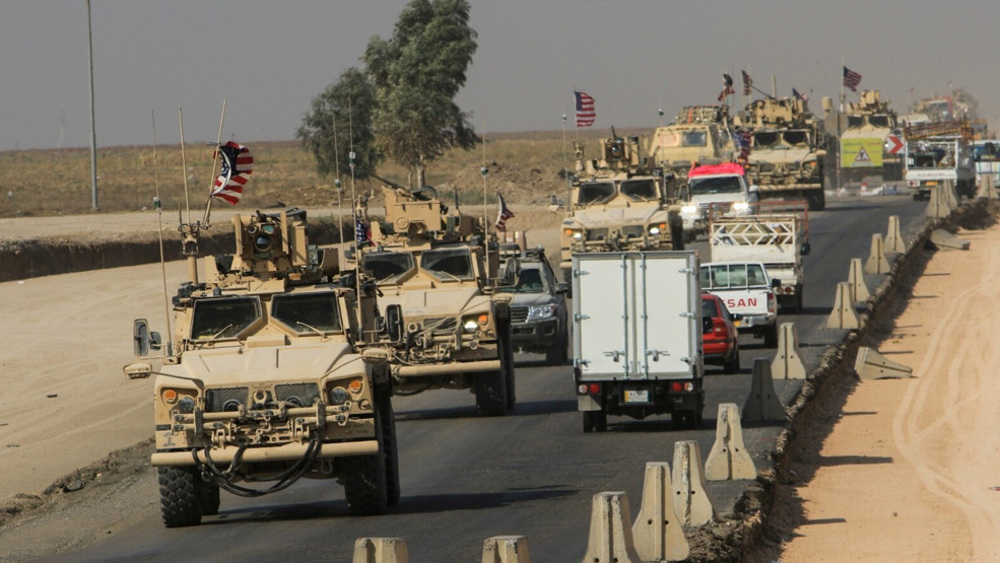
US arms convoys enter Iraqi Ain al-Asad base from Syria: Report
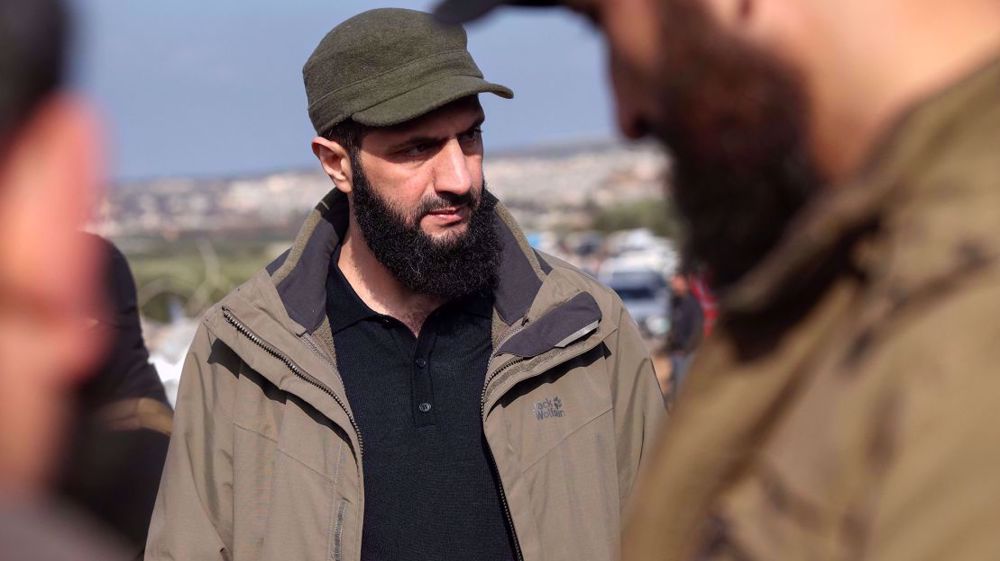
Syria’s self-proclaimed president can be arrested if he visits Baghdad: Iraqi figure
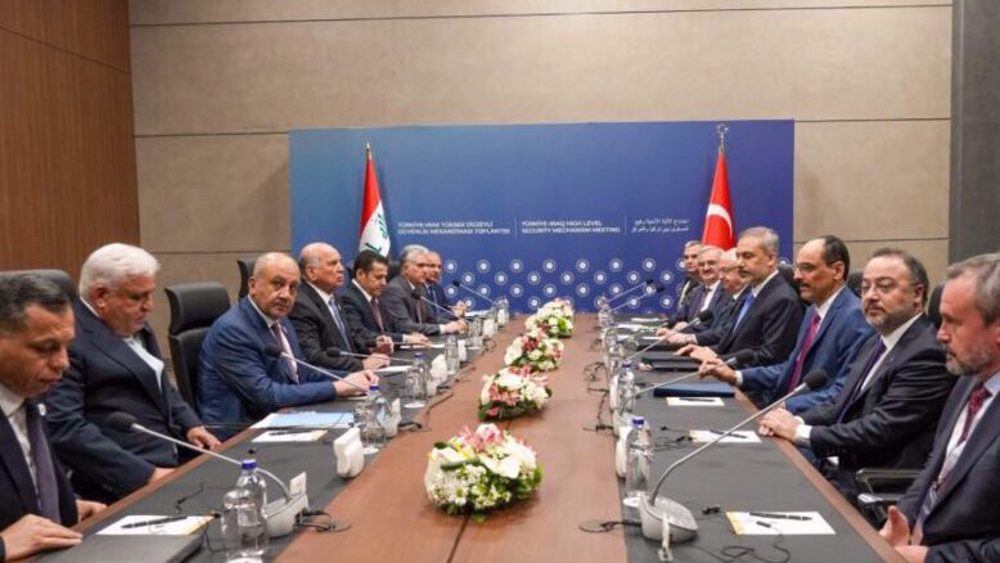
Iraq warns Daesh threats ‘resurging’ in Syria
2025 World Press Photo: 9-year-old Palestinian amputee symbolizes Gaza's tragedy
Araghchi holds talks with counterparts as more countries support indirect Iran-US talks
Palestinian prisoner dies in Israeli jail due to deliberate medical negligence
China ‘firmly’ opposes countries making trade agreements with US at its expense
Israel 'hell-bent' on decimating Gaza’s health system: Hospital director
VIDEO | Demonstration called against military cargo ship arrival at Algeciras Port
Iranian Armed Forces achieve ‘most sophisticated’ defense technology: Military official
Israeli forces, settlers escalate West Bank raids, killings as more Palestinians displaced







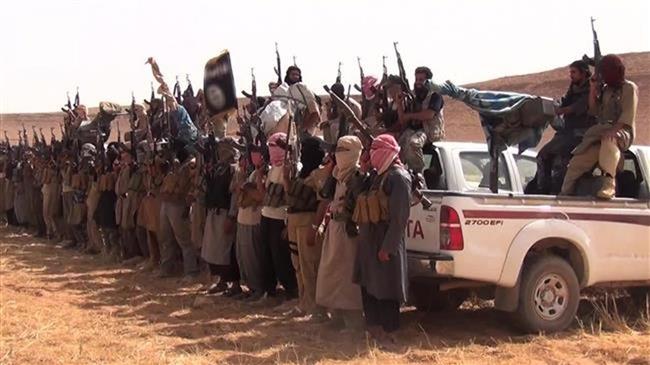
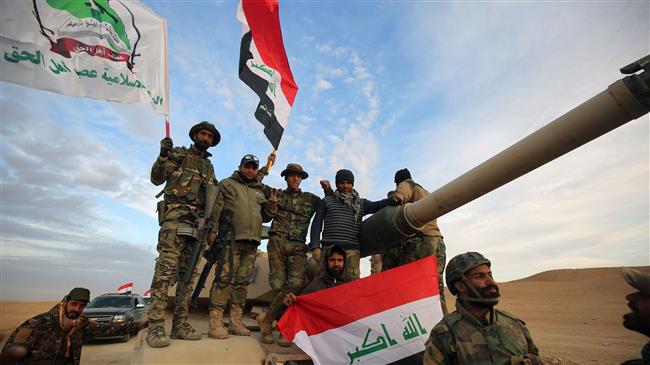






 This makes it easy to access the Press TV website
This makes it easy to access the Press TV website